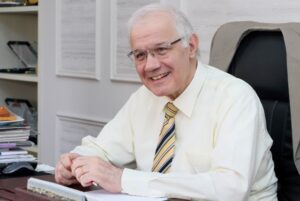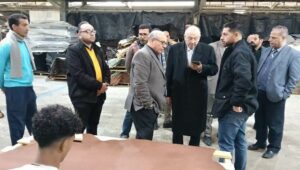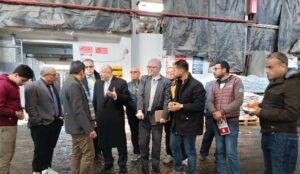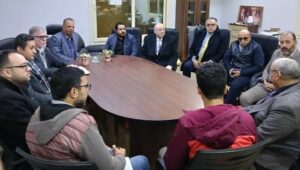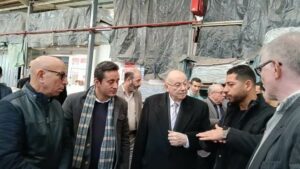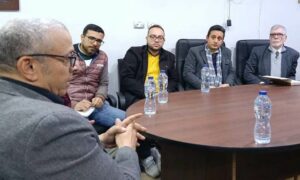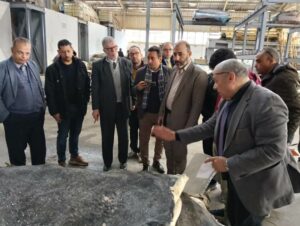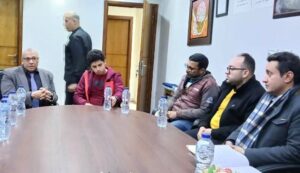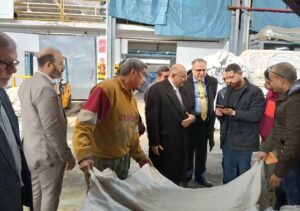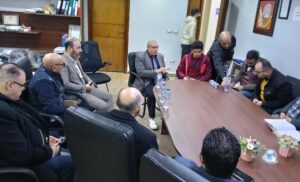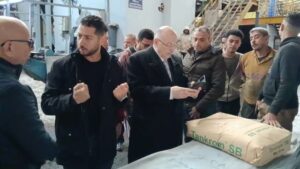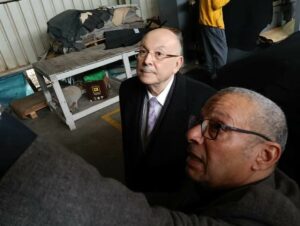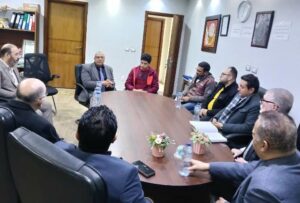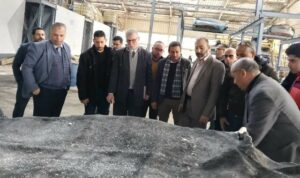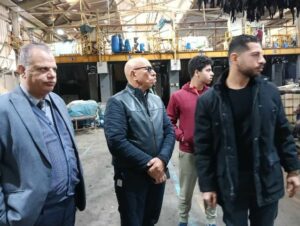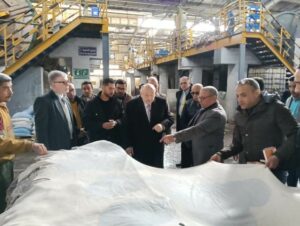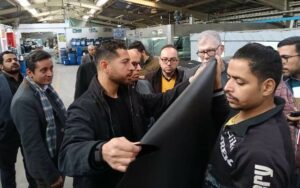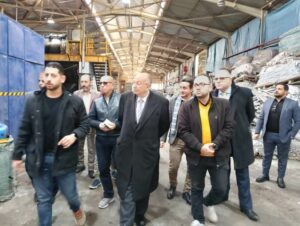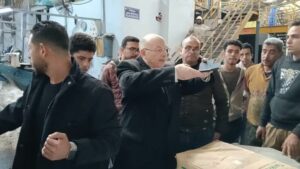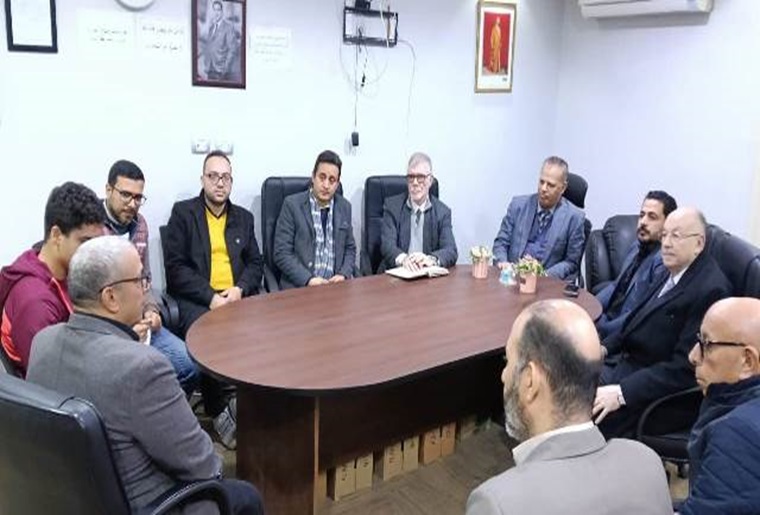A delegation from the Egyptian Russian University in the Leather City.. Reasons and details.
Dr. Sherif Fakhry Mohamed Abdel Nabi, President of the Egyptian Russian University, announced the visit of a delegation from the university to one of the production lines in the tanning factories inside the Leather City in El-Roubiki. The delegation included representatives from the faculties of: “Artificial Intelligence, Engineering, in addition to “the Center of Excellence for Science and Innovation”; aiming at identifying areas of contribution in improving the work environment and solving the problems facing that sector. This visit comes within the framework of the state’s strategy to maximize the role of the leather industry by manufacturing integrated products from leather products that compete in global markets. Noting that the delegation’s visit was sponsored by Dr. Mohamed Kamal El-Sayed Mustafa, Chairman of the Board of Trustees of the Egyptian Russian University.
In a related context, accountant Mustafa Hussein, Vice President of the Leather Tanning Chamber and member of the Board of Trustees of the Leather City, expressed his aspiration for fruitful cooperation with the Egyptian-Russian University. He explained that this cooperation aims to solve most of the obstacles facing the leather tanning industry, including: “producing most imported chemicals locally to reduce production costs and save hard currency, training skilled technicians in mechanical and electrical maintenance work, in addition to developing technical solutions to reduce time and save effort in the stages of production lines using artificial intelligence and data science technologies.
In the same context, Dr. Essam Khamis, Advisor to the President of the Egyptian-Russian University for Academic Development, confirmed that the obstacles were reviewed: chemical, engineering, electrical, and providing imported spare parts; facing production lines in leather tanning factories and knowing the maintenance costs and expensive raw materials that are imported from abroad due to their unavailability in the local market. He pointed out that the university will try to work on solving most of these problems due to the distinguished cadres of faculty members in its colleges; In addition to the good communication between the university and specialized research centers that have the ability to solve all obstacles adding that Dr. Osama Abdel Hafeez has already started conducting semi-industrial experiments on the use of a local environmentally friendly alternative material to remove hair from leather, which was successfully developed at the Center of Excellence for Science and Innovation at the “Egyptian Russian University”.
For his part, Dr. Hesham Fathy, Dean of the Faculty of Artificial Intelligence at the Egyptian Russian University, indicated that artificial intelligence will be used in the leather tanning industry in several ways; which helps improve the efficiency of the process, improve the quality of products, reduce time and save production costs; explaining that this visit comes within the framework of the state’s plan to establish factories to manufacture leather and that “artificial intelligence and data science” can be used in:
– Using statistical models to predict the quality of leather after manufacturing.
– Improving the dyeing process and ensuring equal color distribution.
– Examining raw leather and evaluating its quality.
– Contributing artificial intelligence to the manufacturing process in the third phase of the Leather City.
On the same topic, Dr. Saeed Hassan, Vice Dean of the Faculty of Artificial Intelligence at the Egyptian Russian University, explained that artificial intelligence technologies have the ability to analyze the quality of manufactured leather and identify any defects and sort it with extreme accuracy, in addition to classifying products according to their quality and design. Noting that there are solutions and innovations to save the electric energy used in leather tanning factories, in addition to using neural networks to analyze data and improve production processes; to reduce waste in the leather industry.
The Vice Dean of the Faculty of Artificial Intelligence explained that the Egyptian Russian University can contribute through the cooperation protocol to develop the technology center by supporting it with an advisory board of university professors specialized in the field of artificial intelligence, data science, the Internet of Things, industrial chemistry, mechatronics engineering, information technology, automated systems and quality management.
On the same topic, Hussein Mustafa Hussein, Vice Chairman of the Board of Directors of the Egyptian Company for Leather Industry and Tanning, stated that the industry needs cooperation that serves the interest of the leather tanning sector and keeps pace with technological development; Especially in production line equipment and achieving self-sufficiency in machine spare parts; explaining that this cooperation will contribute to saving hard currency and reducing production costs; which will enable them to continue to compete with the products of advanced countries in the leather industry globally; and achieve a continuous growth rate in increasing exports; especially since Egyptian leather is characterized by high quality.
The visit delegation included: “Dr. Sameh Zarif, Head of the Artificial Intelligence Department, Dr. Wael Badawy, Head of the Data Science Department, Dr. Mahmoud Khaled, Lecturer in the Artificial Intelligence Department from the Faculty of Artificial Intelligence” and “Dr. Omar Fathy, Lecturer in the Mechatronics Department, Dr. Tamer Saleh, Lecturer in the Communications Department, Dr. Mohamed Maher, Lecturer in the Communications Department”, from the Faculty of Engineering, and “Mr. Mohamed Karim from the Center of Excellence”.
